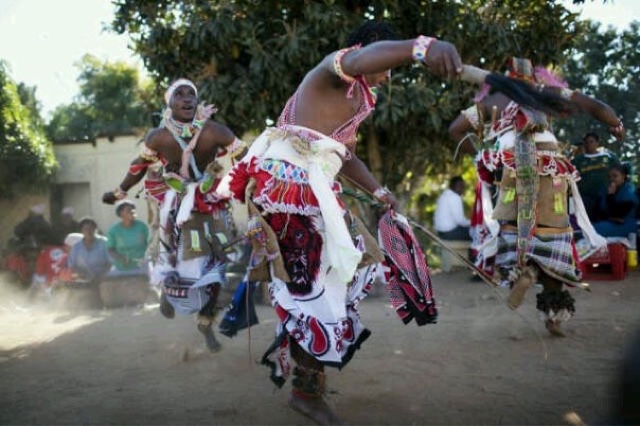Many years down the line, there are many pockets of activists for different causes. But the main social issues remain a thorny issue for poor Black communities. It is my view that gay lobby groups will be fighting the same fight ten years from now if they are not seen fighting social ills of the broader communities alongside their own agenda. Simon Nkoli was an anti apartheid activist, gay rights activist and Aids activist. If we can say this about one man, why can't we still contain social ills when we have so many lobby groups?
Activism should start with the communities that we live in. If Matuba Mahlatjie wants hate crimes against lesbian and gay people to stop he has to know and understand his community. Why can't Matuba lead a march titled LGBTI community against drug abuse. Why can't he print pink posters with a message that support the community's battle against a wave that's killed the soul of so many parents? You cannot fight for your own cause in a volatile atmosphere where family life is destroyed. People have to be in the right mindset to acknowledge your cause. They also have to see you as part of their "family".
I referred to Simon Nkoli, who was part of the movement that fought and eventually dismantled minority rule in South Africa. There were no gay rights at that time. But he priorities freedom for all before moving to desensitise his comrades about gay rights. This is a good formula and a formula we should all follow. Imagine if sex workers, LBGTI community and environmentalists all marched on the same day at different times and venues? Where is the impact.
A recent good example is the EconomicFreedom Fighters' successful march in Johannesburg under a common cause. More than Fifty thousand people heeded the call. I will take a wild guess and say among them were people who supported many other causes, but felt on that day, they support emancipation of the working class.
Let's not be Like the political elite that takes all the credit for our political freedom, but have lost touch with the people they say they liberated.
The twenty one years of freedom is long enough for all of us to realize and accept what is working and what is a setback in our bid to move South Africa forward. Politics affect the price of bread. We need to be involved from the bottom up.
Activists cannot be seen rubbing shoulders with government officials cutting ribbons and "earning respect" of their peers. If we deserve it, we should be earning it from our communities. That is where I believe we should be contributing positively. That's where we should be explaining Laws that protect minorities.
Sisonke Msimang, a writer and activist says com minty members can document their little victories, but it's important to get journalism involved in exposing everything that stands in the way of Justice.
She said, "Citizens can take pictures and they can document events, but journalism is an art and a science and it matters because it makes our country more honest and true. A normal person cannot dedicate the time and resources to interviewing people and phoning lawyers and securing documents."
Whatever our cause is, we need to be consistent and aware of the broader community so that we can apply the effective remedies to address our challenges.


